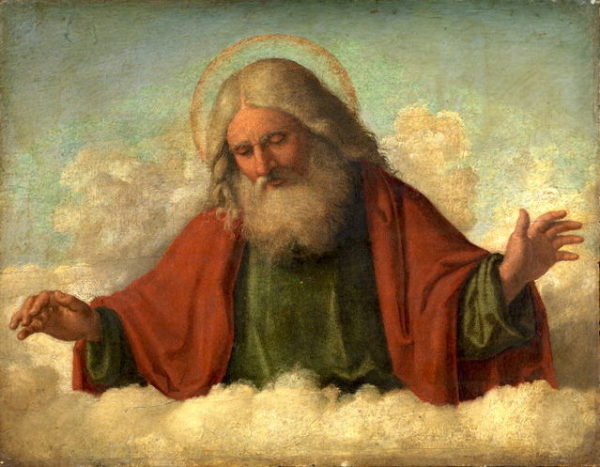Here, Moses discusses his thoughts first about miracles, then about Judaism and other religions. Fascinating stuff. Tomorrow it’s all about the Middle East conflict. You don’t want to midst that one.
Me: Why don’t we see these miracles any more?
Jamie: What he was explaining is that centuries ago, when there were fewer human beings, there was a more innocent way of believing in nature’s power and magic, and believing in God’s well. And he said—
(Pause)
Jamie (to Moses): Good or bad?
Jamie (to me): He’s not saying that this is good nor bad, but in older times on the Earth, there was less energy competing.
Me: Ah!
Moses: There was less growth, less industry, and God had many ways of showing the interactions—Higher Source. God had many ways of interacting with the people on the Earth, whereas now, God is more removed from working with the Earth and helping. He’s more involved with working with the Earth as a whole. It’s because of the knowledge and growth on today’s Earth, the energy is very different now than it was then. Miracles still do happen now, but because you feel smarter and more scientific and logical, you tend to not believe in them. You identify them as a mystery or write them off as, “This must be something different or something else. This is not something we can identify as a miraculous or religious belief.
Me: Science gets in the way sometimes.
Moses: Yes, but it’s going to come back around.
Me: Oh, good! When?
Erik: Does that mean a bunch of us are going to die, and we’re going to get real simple again?
Jamie laughs.
Moses: No, I’m saying that science and religion and beliefs are going to come back around and be simple and easy again, away from our own understanding where you put too much investment in logical understanding.
Me: How nice.
Moses: You asked when.
(Long pause)
Jamie: Okay, so several things came up.
Moses: If you ask when, then you’re thinking that time is linear, and it’s not. If you’re asking when, you’re looking for a defined answer when really it’s based upon the consciousness of the people on Earth. An increased level of consciousness is what we’re depending on to be able to reach that level where science and religion and spirituality come together. People can set aside, now, that lack of mystery and understand that the answers are completely in their own temple, their own body.
(Pause)
Me: Can I ask another question, or was he still talking?
Jamie: He was still talking, but I don’t know what it was about, and then I kind of got involved with what he was wearing.
Jamie and I laugh hard.
Me: Always interested in fashion, aren’t you, Jamie?
Jamie: I know! I want to know why they appear the way they do! Is it just because that’s how we’ve sketched them in our heads. You know, I asked him is this really what he wore?
Jamie giggles.
Me (chuckling): Well, it is Friday, so maybe he’s dressed for casual Friday today just like Jesus was.
Jamie (laughing): No, he’s more in a, um, I guess you’d call it a robe. I wouldn’t want to call it a dress or a skirt, but it’s not pants.
Me: Okay.
Jamie: And it’s not long to the ground or anything. I see his calves.
Jamie giggles.
Jamie: I don’t know why I’m giggling so much. Erik, stop!
Me: What’s he doing now?
Jamie: Erik’s in a dress!
Me: Well, that’s okay. He can back up a dress!
Jamie: He wears it well. Old school.
Me: There you go. Now, Moses, what do you think about the practice of Judaism today, you know, the Jewish faith?
Moses: It is still very beautiful, though it has grown to lack the embracing of its foundation.
Erik: What do you mean about that?
Moses: When I was alive, I watched the religions divide—Christianity, Judaism, Islam. Before they divided, there was more of a sense of understanding the same roles of the same characters.
Me: Mm hm.
Moses: And now, what disappoints me is that too much pride has gotten in the way. Pride of their own words, pride of their definition of how and why it was written this way. For all three religions, now there’s just one. That’s the sadness I have about it. If the pride was removed and if we could look broadly at all—
Jamie: He’s only talking about the three.
Moses: –about all three religions, we could see why they each came about and why the—
Jamie (to Moses): Terms? I don’t understand. Explain the terms, please.
(Pause)
Jamie: The terms are how he explains why they became divided. Each culture needed a different type of value to support where they were taking their society.
Moses: Religion and belief should not be driven by culture or society. It needs to be driven by the emotional understanding of the human, of human nature—not location of where they are on Earth and why.
Me: An the collective ego plays a role: “This is MY religion; you have to believe in what we think. Is it that sort of thing?
Moses: Yes. That is what I am speaking of—the pride—the ego that fights against what was once a part of what they believe in today.
Jamie: He reaches up and grabs, then pulls down his whole beard.
Me: From what I understand, you were mentioned in the Holy books and teachings of all three of those religions. There was so much more crossover earlier, and the division came slowly over time. So many wars were fought and are still fought in the name of that division. That’s a shame.
Moses (to Erik): Your mother is right. It’s a deep shame. And now we are all looking to mend belief and God as being one—the unity again.
Me: Yeah. I hope so.



